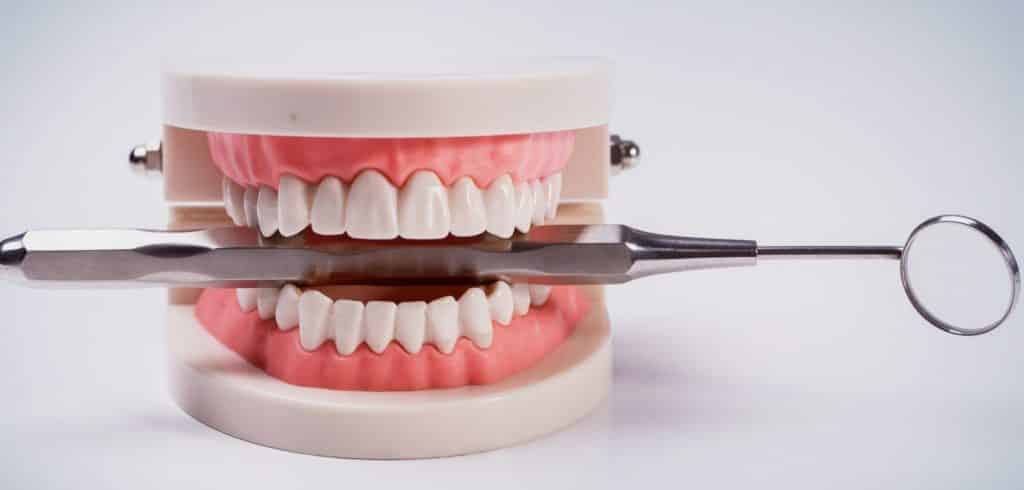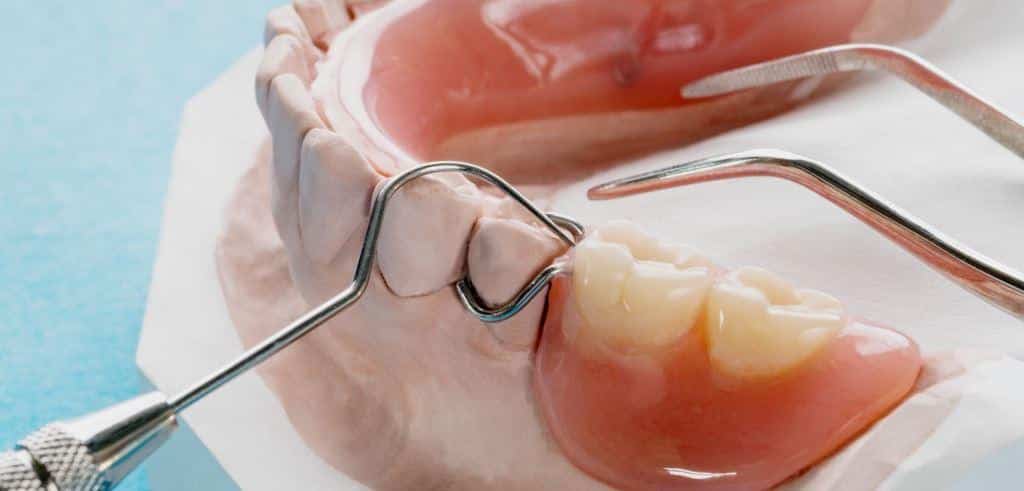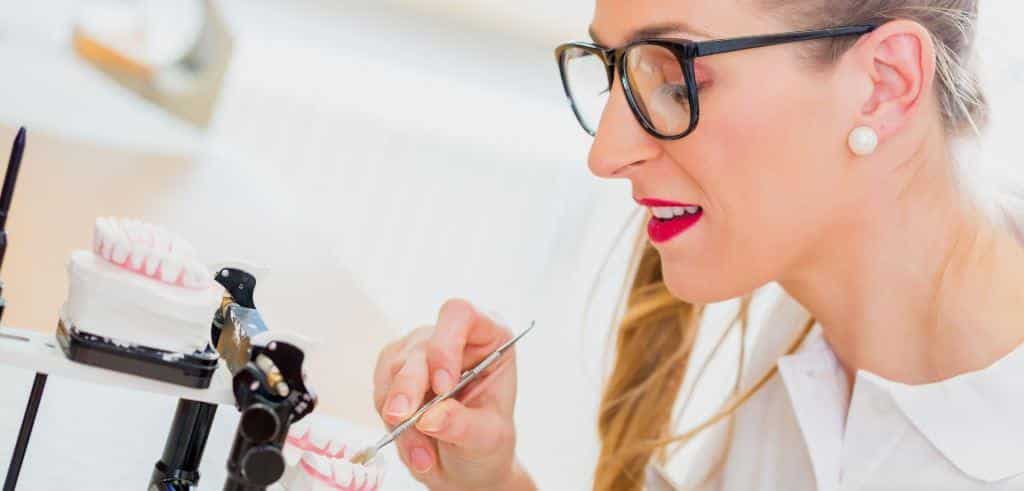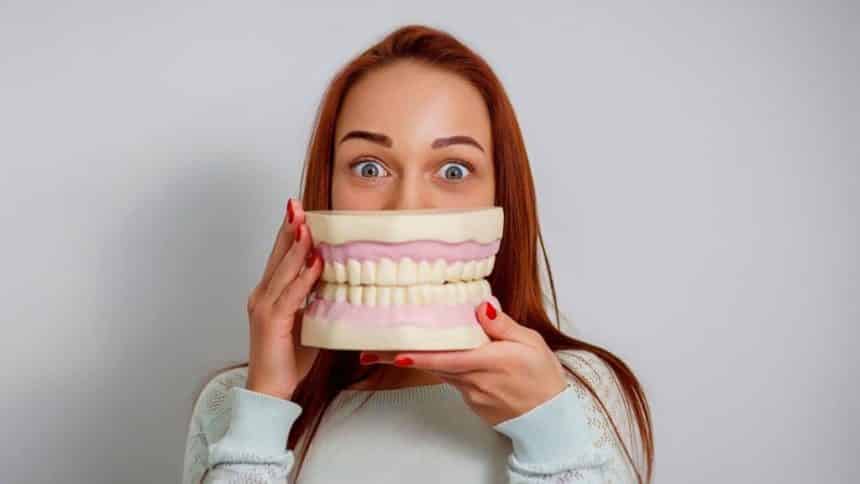You are ashamed of your smile, give up some of your favourite foods and are tired of covering your mouth when you laugh - it doesn't have to be this way! If you are missing some of your teeth, or even most of your teeth, a denture may be the solution. Below you'll find the types and prices of the most popular dentures in the UK, and how to avoid paying a hefty one-off.
Do you really need a prosthesis?
Dentures are used for missing teeth or complete toothlessness. It may happen that the condition of your teeth is so bad that it is necessary to remove them. In such a situation, you can opt for two solutions.
The first is implants, a very permanent solution, but also expensive. If you want to learn more about them we recommend you our article "Implants UK - everything you need to know".
The second option is dentures. Nowadays, thanks to highly developed technology, dentures are almost indistinguishable from real teeth.
Both solutions are not just about aesthetics. Missing teeth have serious consequences. Firstly, the teeth adjacent to the gap may shift, resulting in malocclusion, as well as disorders of the temporomandibular joint. These teeth are also much more prone to periodontal disease, are more easily damaged and may fall out.
Incomplete dentition also means problems with biting and grinding food, which can cause digestive disorders.
You already know why replacing missing teeth is so important, below you will find information on what you can choose from when deciding on dentures in the UK.

Types of dentures dentures in the UK
Fixed and removable - this is the main division of dentures in the UK. The former include the implants already mentioned, but also bridges and crowns, which we wrote more about in our article "Crowns for teeth in the UK - everything you need to know". These are fitted permanently at the dentist's surgery.
In the case of removable dentures, as the name suggests, they can be removed by the patient at any time. Importantly they are used both to replace a single missing tooth, as well as to creating a full dentition.
And we will focus on this type of denture.
Removable dentures in the UK
They are used during the day. They should be removed at night so that the gums, but also the mucous membrane, can rest. There is no denying that it is a foreign element in the mouth, so a removable denture takes some getting used to. Certainly, in the beginning, both eating and speaking will be different from what you have known up to now. Therefore, if you opt for this solution, give yourself time to get used to the new situation.
When it comes to removable dentures, depending on the condition of your of your teeth, you can opt for a partial or complete denture.

Skeletal dentures on teeth
They are most commonly used in the case of missing teeth which are so far apart that it is not possible to insert a prosthetic bridge. so far apart that it is not possible to insert a prosthetic bridge. A skeletal denture consists of metal elements covered with acrylic and is attached to the remaining teeth in the mouth by means of special clasps and attachments.
Importantly, each skeletal denture is created to suit the individual needs of the patient, the structure of his mouth and his missing teeth.
Wearing comfort is higher than that of a full acrylic dentures. It is more stable, making eating and speaking easier, and it is also much easier to keep clean.
Unfortunately there are also downsides, sometimes the buckles and hooks are visible, which spoils the final aesthetic effect.
Full dentures
They are used when all teeth are missing. They are most often made of acrylic, but in our practice we also use their flexible counterpart made of polyamide, which significantly improves aesthetics and wearing comfort.
Regardless of the material used, it is still a foreign body in the mouth that needs to be accustomed to. Certainly with acrylic dentures the price is tempting, it is a much cheaper solution than implants. At the same time, you still get much better comfort when eating and you no longer have to be ashamed of your smile, as is the case with missing teeth.

How much does a denture cost in the UK?
We have mentioned price so I'm sure you're interested in how much dentures cost in the UK. Of course Of course, there is no definite answer as it depends on the city, the surgery and what type of denture you decide on. which type of denture you decide on.
Therefore, treatment prosthetic treatment begins with a consultation, during which your dentist will show you all the possibilities. He or she will also help you make a decision which is in your best interest and which within your budget.
For our dental clinic, the cost of a full acrylic denture is £600, a skeletal denture is £800 and a flexible denture for up to 14 teeth is £700.
We are well aware that this is a large sum for some people, which is why we always offer to use our instalment scheme. Importantly, it is 100% safe and regulated by the Financial Conduct Authority (FCA number 619628). For more information, see the article "Teeth on credit: dental treatment on hire purchase".
Thanks to the system instalment scheme, prosthetic treatment and thus regaining a beautiful smile does not have to does not have to involve a single large expense. We already explain.
Assuming you opt for the most expensive option at our practice, i.e. a full frame denture you will have to spend £800. Using the instalment scheme (for 12 months at an interest rate of 0%) you will pay £67 per month for it. As you can see for yourself, it's a big difference that you will definitely feel in your budget.
And most importantly you will feel it in your mouth and beyond. You'll stop being ashamed of your smile, you'll get back to eating your favourite foods and you'll no longer have to cover your mouth when laughing to your heart's content.
If you need more information write to us or online agreements make an appointment with a prosthodontist.
We also invite you to follow our channel on Facebook.

